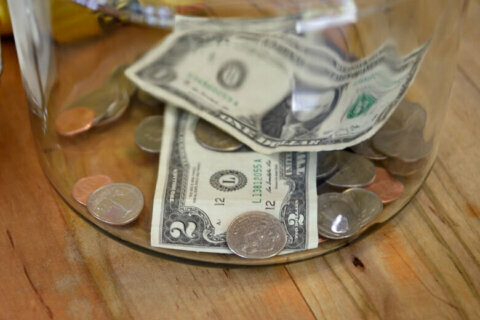The housing market is rapidly losing steam. Interest rates continue to rise. The stock market remains volatile. And inflation continues to be a major problem for people trying to pay their bills.
Given all that, one might think the de-facto economic report card for the third quarter — gross domestic product, or GDP — due Thursday will be bleak.
But here’s the thing.
Economists are actually predicting decent, if not spectacular growth. The consensus forecast from economists surveyed by Reuters is that GDP grew at an annualized pace of 2.1% in the third quarter. (This will be the first estimate for third-quarter GDP, and there will be several revisions in the coming weeks.)
There’s an even rosier projection from the Federal Reserve Bank of Atlanta, whose widely watched and well respected GDPNow model tracks all the latest economic data and comes up with a projection for GDP. The latest GDPNow reading calls for 2.9% annualized growth.
Why so rosy despite all the bleak news? For one, a big chunk of GDP is comprised of consumer spending — and though we’re all complaining about inflation, rising prices haven’t actually stopped consumers from splurging just yet. According to figures from the government, retail sales were up 8.2% in September from a year ago.
It also helps that the labor market is still healthy. American companies are adding hundreds of thousands of jobs a month, the unemployment rate is near a half-century low of 3.5% and wages are growing (albeit not as fast as prices.)
If GDP winds up rising somewhere between 2% and 3% — instead of contracting as it did in both the first and second quarter — it means it’s less likely we’re in a recession. That would be welcome news for consumers, investors and the Federal Reserve.
That also means the Fed will likely continue to sharply raise interest rates to finally choke off inflation once and for all. Yes, that increases the odds of an eventual recession down the road since rate hikes take time to impact most parts of the real economy, with mortgage rates and housing being the notable exception.
“The Fed risks triggering a U.S. recession with its rate hikes, but the greater risk is an economy at the mercy of rising prices,” said ADP chief economist Nela Richardson in a report. She argued that inflation may boost growth nominally as consumers spend more…but it comes at a cost. It eats into workers’ paychecks.
Not out of the woods yet
Beyond a strong third-quarter report, though, some economists are concerned about the future hit to growth.
“The looming GDP hit from higher rates and stronger dollar is enormous,” said Jeffries economists Aneta Markowska and Thomas Simons in a report. They compared the current Fed tightening and its aftermath to when the Fed was aggressively raising rates to fight inflation in the early 1980s under then Fed chair Paul Volcker.
Those rate hikes helped cause a so-called double-dip recession, where the economy suffered two downturns between 1980 and 1982.
Markowska and Simons are also worried that the Fed is so intensely focused on inflation that it won’t act quickly enough to lower rates again once the economy does show more prolonged signs of softening.
“We also expect the Fed to be slow to respond to economic weakness, which will likely prolong the next recession and exacerbate its severity, they said, adding that they don’t believe the Fed will cut rates until early 2024…even though a recession could begin by the third quarter of 2023.
In other words, the much-hoped-for “soft landing” for the economy could turn out to be a pipe dream.
“An economic downturn is likely in 2023 due to the difficulty in achieving a soft landing in general. Achieving a soft landing with inflation above 8 percent will prove even more challenging,” said José Torres, senior economist at Interactive Brokers, in a report.
“This recession may require the Fed to keep their foot on the brakes longer,” he added. “Fighting high inflation while simultaneously keeping economic growth positive is a challenging ordeal.”
The bottom line: So the good news is that the economy is not likely in a recession just yet…and third quarter GDP should back up that view. The problem is that a downturn is still probably coming at some point in 2023.







